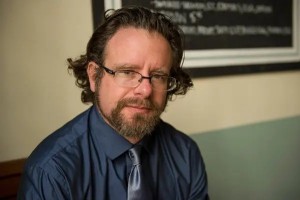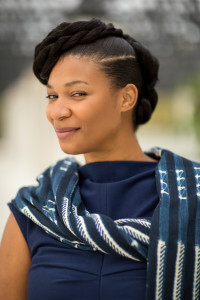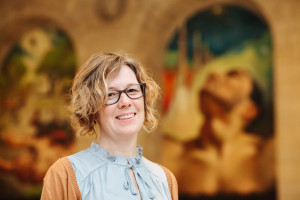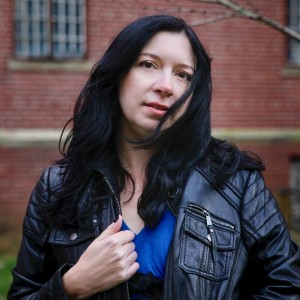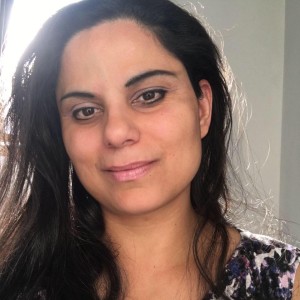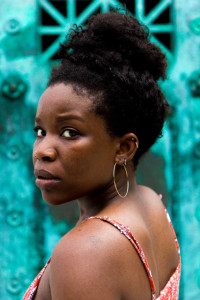 In this FPP Interview, I.S. Jones shares how cooking can be a “reprieve from a legacy of blood,” how creating a professional future as a writer who creates spaces and security for other writers is the “work of the heart” she knows would be fulfilling, and much more. Read her interview then RSVP to join us virtually on Sunday, April 18, 2021 from 6-8pm to hear I.S. Jones read with Ed Baptist, Ashaki Jackson, Kristin Palm, and Alison Stine.
In this FPP Interview, I.S. Jones shares how cooking can be a “reprieve from a legacy of blood,” how creating a professional future as a writer who creates spaces and security for other writers is the “work of the heart” she knows would be fulfilling, and much more. Read her interview then RSVP to join us virtually on Sunday, April 18, 2021 from 6-8pm to hear I.S. Jones read with Ed Baptist, Ashaki Jackson, Kristin Palm, and Alison Stine.
In your poem “Cain” you re-imagine the Biblical characters Cain and Abel as sisters in what, to this reader, is a deeply satisfying reinterpretation. Could you tell us a bit about what inspired you to re-imagine the story this way?
I’ve been writing these poems since 2016 and it still dazzles me how my work reaches people, especially because I was very close to throwing this manuscript [chuckles]. I was still living in Astoria in 2016 with my sister and it was a very tumultuous time. Tr**p was just elected president, I was in a program that was dishonest about funding. I was deeply angry and that’s where “Cain” comes from. I need a safe space to put down my rage, least it goes elsewhere less safe. I also just deeply unsafe as a Black woman in an America that had become very proud to show it was a white supremacist nation. In the center of all that, my relationship with my sister was very brutal and violent. And that’s when the poems were born.
In your poem “Kitchen Work,” the speaker’s hands are “alchemical,” doing what it takes so that “no one goes hungry in my house.” Yet the speaker also declares: “Each of us knows a recipe for poison. I know my sister is allergic to peanut oil.” In this poem, and in so many others, you write profoundly and viscerally about life and death and how our own hands can make the difference. Are there scenes, or lingering images from your own life that you know have driven you to work with these themes?
I love to cook; cooking is one of my unfettered joys in this life. One of my earliest memories in the kitchen is my mother teaching me how to clean whole chicken and fishes. How to crack open a chicken’s ribs, how to descale a fish, how to skin a chicken, how to take out a fish’s red throat. The poem “Kitchen Work” is in the voice of Abel and I find her to be such a fascinating character because everything she understands about touch is inexplicably tied to death, so what if I could complicate her narrative. I think it’s a difficult position to be in: she has to keep killing to earn her keep, to prove her life is of value. In that way, much like myself, the kitchen is her reprieve from a legacy of blood.
Tell us about what “home” means to you. How does “home” differ for you and your other family members? Are the differences reconcilable? Does that matter?
This is a question that comes up in my chapbook. Years ago, Nimrod Journal had a call for poems about “home” and it occurred to me that I didn’t understand what the word means. I missed the deadline, but the question lingered. I’ll be honest with you that I still don’t know what “home” means. Home is my friends, my chosen family. Home is where my books are. Home is Brooklyn for me. Home is where I feel safest.
Your efforts show yourself to be a strong literary arts community builder. What has surprised you about this work? What has enriched your own work?
Thank you for saying this, it means so much. It’s really the work of the heart for me. Last week I was talking to a teacher about what I wanted to pursue in terms of job prospects once I graduate. I was very frank and said, “I don’t want to teach. At least not in the conventional way.” I know I want the work I do to bring literary arts to larger communities. I want to generate funding for parents so they can have childcare and will have space to pursue their art with financial backing and without stress. I want to create physical space for immigrants seeking asylum. I have, for some time now, have been dreaming of create a multi-cultural space for all women and non-binary femmes called “The Immigrants Daughters Club” where we can share our stories of what it means to be children of immigrants. What surprises me about this work is hearing, “Wow, I need this” or “Thank you for doing this.”
I’m one of the editors for 20.35 Africa and right now we’re launching a fundraiser to be able to pay our staff, contributors, and mentorship program, an idea I pitched to Ebenezer Agu, 20.35 Africa’s founder when I first came onboard. I think about African Letters and the urgency I feel to create what the generation before us did not have and were unable to pass down to us. If I can dream big, and I know I can, I want to make conditions better than they are and pass that legacy onto the generation of writers coming behind me so that they can do even more than I was able to. Does it enrich my own work? Yes, I would say so. As I said, this is work of the heart. This is what I could spend my life doing and I would be fulfilled.

